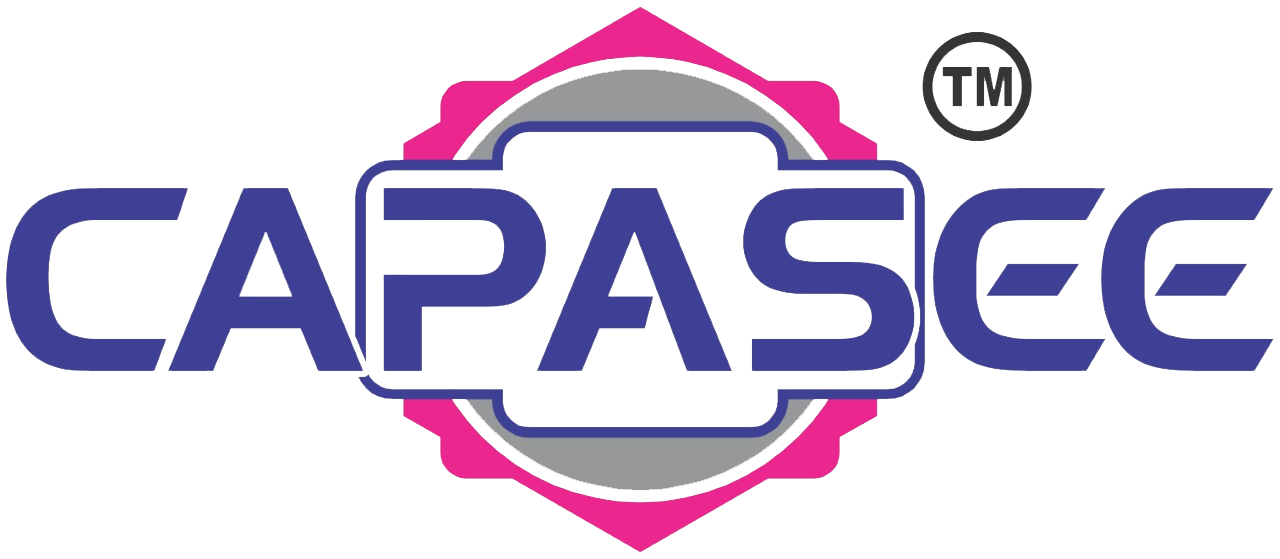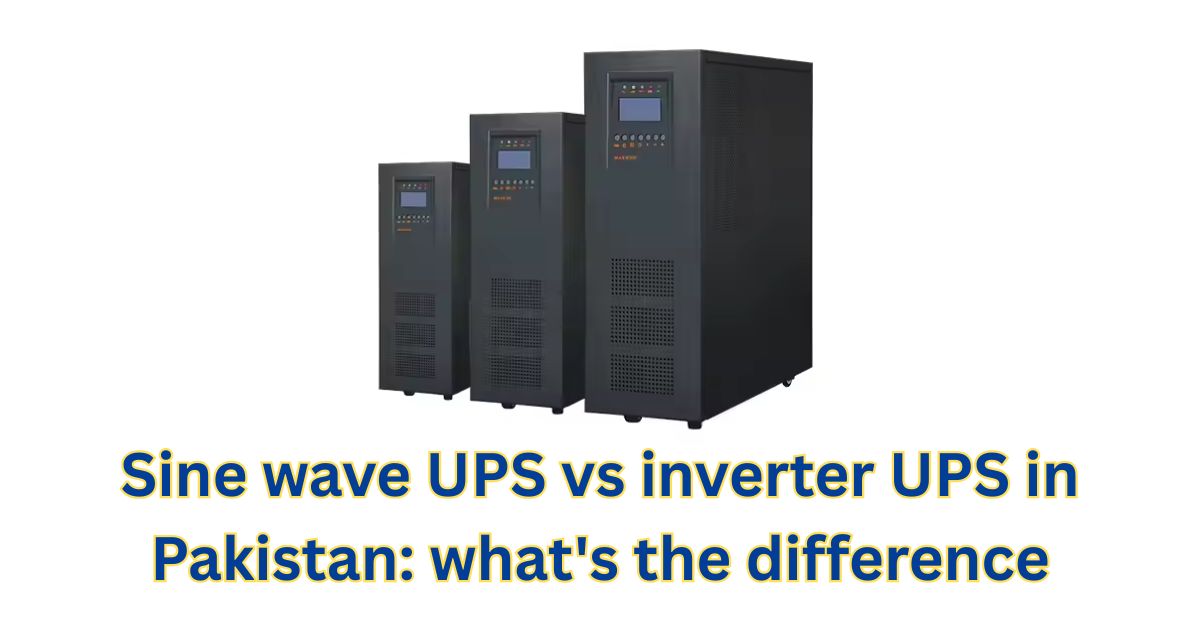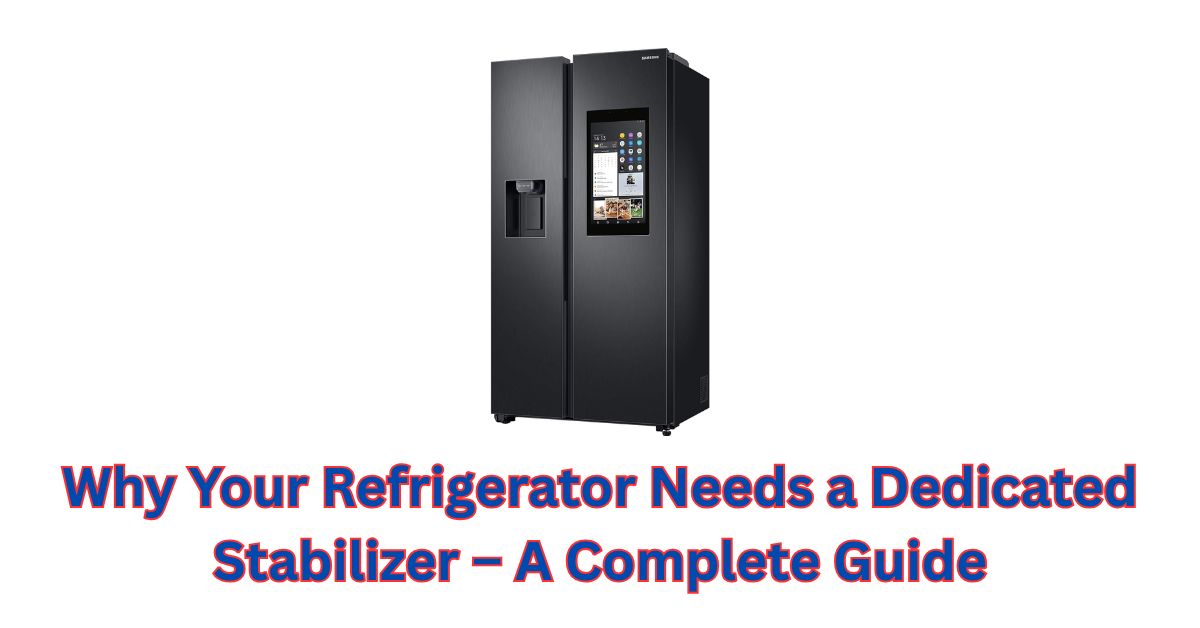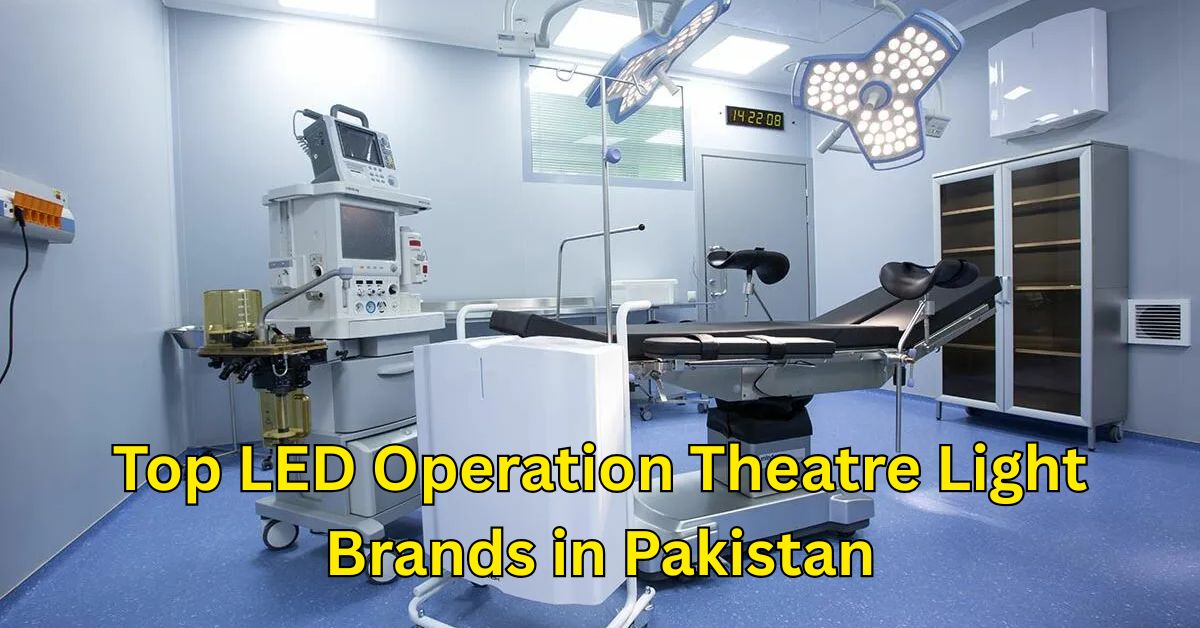Though they operate differently, a sine wave UPS and an inverter UPS both offer backup power during an outage. Like what you get from the grid, a sine wave UPS generates a continuous, smooth flow of electricity. Conversely, although the output is not as smooth as a sine wave, an inverter UPS converts DC (direct current) to AC (alternating current).
The primary difference influences the power quality supplied to your appliances. Perfect for sensitive devices like computers and medical equipment, a sine wave UPS provides cleaner, more consistent power. For simpler electronics, inverter UPS units might be appropriate; yet, they can pose problems with more sensitive technology.
Think on what you need to run while choosing a UPS. A sine wave UPS is your best choice if you want improved protection for high-end equipment.
Understanding Basic Terms
It becomes simpler to analyze the two systems after learning the basic terminology that applies to sine wave UPS versus inverter UPS. During a power outage, a UPS uninterruptible power supply offers backup. The system offers continuous operation protection for your gadgets during complete power failure. The inverter works as a common electronic converter that transduces DC power into the alternative current format. Sensitive equipment such as computers and medical equipment should use sine wave inverters for their perfect pure power output.
The quality of the electricity generated by a sine wave UPS and an inverter UPS distinguishes them mostly. A pure sine wave inverter produces a clean electrical waveform that quite closely corresponds with grid electricity. This guarantees dependability of power and helps to prevent equipment malfunction or electrical noise. A modified sine wave inverter provides a less consistent, rougher source of power. Although it would be appropriate for basic electronics, it can produce problems with delicate equipment such as harmonic distortion or voltage control concerns. Understanding the variances enables you to choose the best backup power source for your requirements.
What is a UPS?

Allows users to maintain electrical backup during power outages is the function of a UPS device or uninterruptible power supply. The device enables essential medical equipment together with routers and computers to operate without primary electrical supply interruptions. The UPS automatically activates battery power as the grid power fails because of the backup system. The device literally prevents deaths in regions where electric power failures are frequent occurrences. Models in the UPS industry need three distinct backup approaches which include online/double-conversion UPS, offline/standby UPS, and line-interactive UPS.
Protecting delicate equipment from unexpected power surges or dips depends on a UPS in great part. It keeps voltage control, therefore avoiding damage from harmonic distortion and other electrical problems. For example, compared to a modified sine wave inverter, a pure sine wave UPS offers cleaner and more steady electricity. Devices like high-end computers and medical equipment that need exact and consistent power output depend primarily on this. Effective power conditioning and battery storage let a UPS make sure your gadgets stay powered and protected independent of the main source of electricity.
What is an Inverter?
An inverter is a device transforming DC (direct current) power into AC (alternating current). Power conversion is the procedure used in household appliances and other devices requiring AC to run. Off-grid power systems such as solar panels where battery storage is required to store energy often feature inverters. UPS (Uninterruptible Power Supply) systems also employ them to offer backup power during an electricity outage. An inverter lets the stored energy in the battery run appliances including computers, fans, and lights when the power fails.
An inverter enables different types of electrical output configuration. A pure sine wave inverter provides ideal conditions for sensitive electronics because it manufactures solid and pristine electrical waveforms. Modified sine wave inverters provide less efficiency together with the possibility of harmonic distortion and electrical noise production. The selection of inverter depends on the amount of power you require. The technical equipment of medical devices and premium PCs requires the pure sine wave inverter because it delivers improved power stability to sensitive equipment. Your understanding of the variations between a sine wave UPS and an inverter UPS will guide your selection between these two devices for your residential or business needs.
You May Also Read This Blog: Buy 12 Lead ECG Machine for Sale – Best Prices Online
Sine Wave UPS vs Inverter UPS: Core Differences
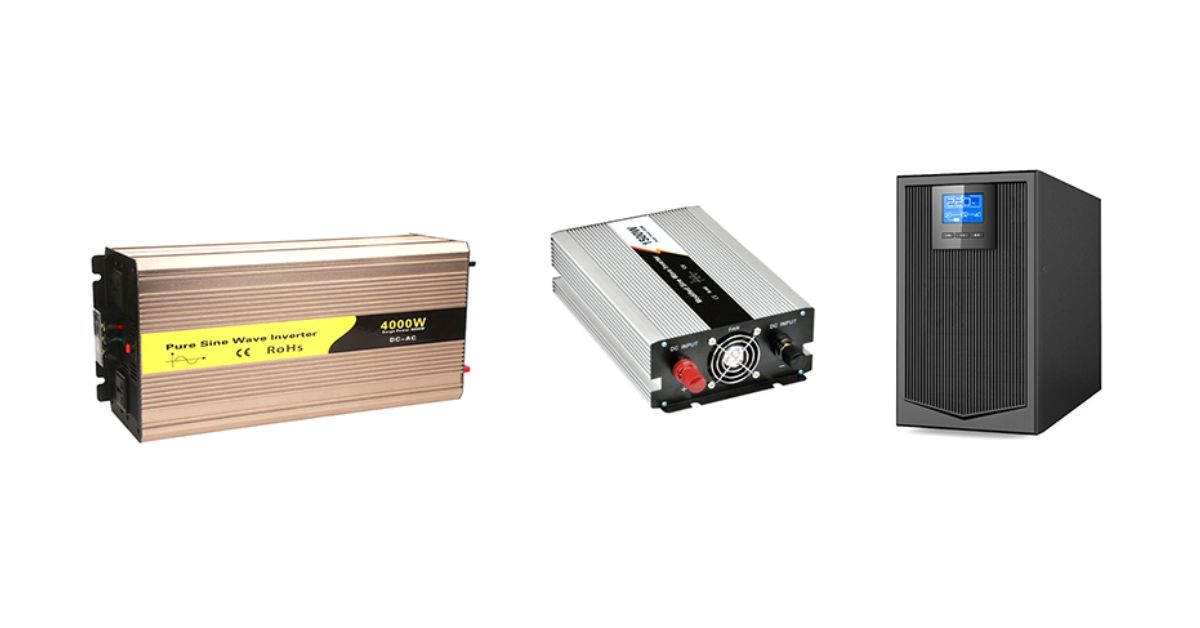
Backup power during a power loss comes from both sine wave UPS and inverter UPS. Still, they behave differently. A sine wave UPS generates a reliable, smooth electrical signal by use of pure sine wave output. This guarantees higher power stability and lowers electrical noise, hence it is perfect for running delicate equipment like computers and medical tools. Conversely, an inverter UPS may not be appropriate for sensitive electronics since it might create interference or damage to delicate systems using a modified sine wave or square wave output.
The energy conversion quality of a sine wave UPS and an inverter UPS distinguishes them mostly. Cleaner DC to AC conversion from a sine wave UPS guarantees constant voltage control for devices. By contrast, an inverter UPS provides battery backup but could cause harmonic distortion and ineffective energy use. This reduces the performance of more power-hungry appliances and influences the inverter efficiency. To ensure your devices get the correct type of continuous power while deciding between the two, take into account elements such as power needs, backup length, and the need of surge protection.
Output Waveform (Pure Sine Wave vs. Modified/Square Wave)
One main distinction between sine wave UPS and inverter UPS is the output waveform they generate. Like what you get from the grid, a pure sine wave output is smooth. For delicate products like computers and medical equipment, this is perfect since it lowers danger of damage and helps to avoid electrical noise. For devices that need constant and clean power, the pure sine wave inverter guarantees steady power conditioning and improves voltage control, therefore increasing their efficiency.
Conversely, a modified sine wave inverter generates a less steady waveform that might induce harmonic distortion. Although this kind of waveform is less expensive, it may damage fragile electronics and result in low inverter efficiency or buzz of equipment like fans or speakers. The modified sine wave might not be the ideal option for more sensitive devices even if it is appropriate for basic appliances. Thus, take your power needs and the equipment you need to safeguard into account while choosing between a sine wave UPS and an inverter UPS.
Voltage Regulation & Stability
Stability and voltage control are absolutely important when comparing sine wave UPS against inverter UPS. Excellent voltage control given by a pure sine wave UPS guarantees that the output is constant and steady. Sensitive devices like computers and medical equipment, which need constant power and exact voltage, depend mainly on this. Better power conditioning and the capacity of a sine wave inverter to preserve power stability help to avoid device damage. It guarantees effective energy conversion, therefore lowering the possibility of electrical surges or spikes that can damage delicate systems.
A modified sine wave inverter finds it difficult to sustain constant voltage, on the other hand. It might create power supply fluctuations, which would produce harmonic distortion or perhaps damage sensitive devices. Devices like fans, speakers, and freezers may suffer as well as inverter efficiency from the voltage swings from a modified sine wave output. Although modified sine wave inverters are less expensive, they are less fit for high-tech or power-hungry appliances since they lack exact voltage control. Therefore, the correct UPS relies on your power needs and the degree of reliability your gadgets demand.
Transfer Time (Critical for Sensitive Devices)
Sine wave UPS’s transfer time compared to inverter When thinking about backup power for delicate equipment, UPS is quite important. Short transfer times of UPS (Uninterruptible Power Supply) systems guarantee that switching to battery power during a power outage causes no delay. More suited for delicate electronics including computers, medical equipment, and audio equipment, a pure sine wave UPS has a faster and smoother transition. During unanticipated power outages, this fast transfer time helps prevent data loss or device damage. Extended delay in switching power might damage the components and disturb the operation of sensitive equipment.
By contrast, greater transfer times of modified sine wave inverters might cause a temporary power gap. In delicate electronics that run on continuous, clean electricity, this delay can cause performance problems. In modified sine wave inverters, power conditioning is less effective, which increases harmonic distortion risk. Devices include medical tools or computer systems could malfunction during this little delay. Choosing a sine wave UPS guarantees continuous and consistent power supply with minimum transfer time, especially when safeguarding delicate devices, thereby ensuring best outcomes.
Applications (Home, Office, Industrial)

The use of a sine wave UPS becomes essential for domestic applications to protect medical equipment and TVs and laptops. Sine wave output purity protects all devices from disruption so they can receive reliable electricity without disturbances. Programmed power backup in sine wave UPS systems keeps critical equipment operational when blackouts occur thus safeguarding important devices completely. The protection that delicate devices need from a modified sine wave inverter is insufficient for their proper operation. Computer systems with UPS backup stay operational smoothly during blackouts thus protecting data and equipment from harm.
Sine wave UPS systems are essential for high-tech equipment requiring continuous and dependable power in offices and manufacturing environments. These solutions guard costly servers and equipment from power spikes and interruptions. Another advantage of sine wave inverters is power conditioning, which guarantees sensitive systems’ seamless flow of electricity. On the other hand, modified sine wave inverters are less effective in such conditions, which could lead to harmonic distortion or over time damaging of machinery. UPS kinds such as line-interactive UPS or online/double-conversion are suitable for big operations. For business continuity, UPS are absolutely vital and offer outstanding power stability.
Types of UPS Systems in Pakistan

Varied UPS (Uninterruptible Power Supply) systems tailored to fit varied power requirements abound in Pakistan. Among the most often used are line-interactive UPS, offline/standby UPS, and online/double-conversion UPS. Providing simple battery backup during a power loss, offline/standby UPS is reasonably priced and perfect for low-power requirements. It turns to backup only as needed. Suitable for medium-power uses, line-interactive UPS provides more sophisticated capabilities including voltage control and improved power stability. Small businesses and households find this UPS type to be rather popular.
Online/double-conversion UPS is the ideal choice for sensitive electronics and high-power uses as in hospitals and factories. By always turning DC to AC power, this UPS type provides the best degree of surge protection and power conditioning. Crucially for equipment needing pure sine wave output, it guarantees a consistent and clean power source. Both home and business sectors also frequently use inverter UPS systems, which offer energy conversion and battery storage. Because of its pure sine wave output that assures constant power, sine wave UPS is superior for delicate devices when compared to inverter UPS.
Online Double Conversion UPS
Among the most dependable solutions for guaranteed continuous power is an online double-conversion UPS. This UPS guarantees a steady and clean pure sine wave output by continuously converting DC to AC power. Sensitive equipment will thus get It offers a great degree of power conditioning and guards against other disruptions such power surges. Ideal for important applications in homes, offices, and businesses where continuous power stability is crucial, the online double-conversion UPS guarantees that there is no interruption in power delivery unlike offline/standby UPS or line-interactive UPS. When handling delicate devices that call for the best degree of surge protection and power conditioning, this solution is especially helpful.
Systems needing great inverter efficiency and those with large load capacity will find the online double-conversion UPS ideal. Its capacity to sustain a consistent voltage control helps to avoid harmonic distortion and electrical noise capable of damaging delicate machinery. Compared to other UPS models, such sine wave UPS against inverter UPS, the online system provides better dependability and speed. Though more costly than other UPS models, its exceptional energy efficiency and backup length make it the best option for settings like hospitals, data centers, and industrial facilities where a power outage could have major effects.
Line-Interactive UPS
Balancing efficiency and protection, a line-interactive UPS provides a dependable answer for homes and businesses. Without turning to the battery, this kind of UPS automatically modulates the voltage control. It guards delicate devices against power spikes and disruptions. Using energy conversion, the line-interactive UPS stabilizes electricity unlike offline/standby UPS or online double-conversion UPS. For applications with modest power fluctuations, this is a superb choice since it provides protection against voltage sags, surges, and electrical noise while nevertheless offering a sufficient battery backup. Commonly used daily in Pakistan, the line-interactive system is affordable and requires little maintenance.
Comparatively to an inverter UPS, a sine wave UPS provides a reasonable mix of cost and performance. Although it does not provide the pure sine wave output of more expensive systems, most devices including sensitive electronics rely on it for steady power. Although this kind of UPS is more appropriate for modest power fluctuations than for heavy-duty operations, A line-interactive UPS’s inverter efficiency guarantees constant power, therefore lessening the effect of regular power outages. This kind of UPS is perfect for families and companies seeking a reasonably priced, useful power backup system.
Offline/Standby UPS
The most simplest kind of Uninterruptible Power Supply is an offline/standby UPS. It switches to the battery when the primary power fails to offer battery backup during a blackout. Small appliances and sensitive electronics that do not need continuous power protection will find perfect fit for this kind of UPS. Usually using a modified sine wave inverter, which is suitable for basic devices, the inverter technology in offline UPS systems performs An offline UPS might not offer the necessary safety, nevertheless, for devices needing pure sine wave output—like medical equipment. Especially in nations like Pakistan, energy efficiency and cost comparison make it a common choice for daily residential use.
An offline UPS provides a simple yet dependable answer when comparing a sine wave UPS to inverter UPS. For light-duty uses, it operates satisfactorily; but, it provides less protection than line-interactive UPS or online/double-conversion UPS. Although it is more reasonably priced, it could not be the ideal choice for essential systems or those with significant power needs. In an offline UPS, the inverter efficiency could also influence the power stability for delicate devices. When fewer frequent power failures call for a cost-effective solution with backup power when needed without complicated power conditioning, an offline UPS is generally the answer.
Why Pure Sine Wave UPS is Important in Pakistan?

Residential and commercial facilities in Pakistan require Uninterruptible Power Supplies (UPS) as a vital equipment because of repeated power outages across the country. A pure sine wave UPS gives reliable and clean power distribution to various electronic systems including computers and medical devices and residential household appliances. The pure sine wave output creates dependable power conditions through secure operations that prevent device damage because modified sine wave inverters present both electrical disturbances and permanent equipment problems. Power interruptions will not disrupt essential system operations because the UPS features a backup battery system. This device delivers stability that Pakistan needs because occasional power outages do exist while offering major advantages to the country.
A sine wave UPS against inverter UPS comparison reveals that pure sine wave UPS devices are more efficient for running sensitive equipment, so offering a stable and safe energy conversion. These systems’ very high inverter efficiency provides voltage control and outstanding power conditioning. A pure sine wave UPS is the ideal choice for equipment needing either steady power or high load capacity. It guarantees seamless operation of sophisticated electronics and solves issues such harmonic distortion. A pure sine wave UPS offers a necessary layer of protection for your important equipment considering the regular power surges and grid instability in Pakistan.
Power Quality Issues in Pakistan
The primary power quality issues that affect Pakistan stem from regular power outages known as load shedding combined with voltage fluctuations. The problems result in interruptions of life along with damaging electrical devices. The UPS (Uninterruptible Power Supply) system uses a backup battery system to safeguard computer devices from sudden network power interruptions. UPS technologies enable backed-up batteries to keep devices running continuously. A dependable UPS system releases pure sine wave output during operation which represents its most characteristic feature. A stable electric output guarantees equipment protection against distortions and maintains consistent operation of refrigerators and computers. The safety competition reveals a superiority of sine wave UPS machines over inverter UPS technology because they deliver better power reliability.
Still another difficulty for Pakistan is voltage control. Devices can malfunction or overheat from voltage swings. Correcting these problems can be accomplished with a sine wave inverter or UPS with power conditioning. These devices guarantees maximum inverter efficiency by means of pure sine wave output, therefore shielding devices from surge protection issues. The correct UPS will help to reduce electrical noise and preserve power stability whether your needs are for a consistent power source or backup for delicate equipment. In areas where power dependability is poor, this is particularly crucial since it helps guard valuable equipment from damage brought about by unstable power supply systems.
Compatibility with Sensitive Electronics
Choose a UPS (Uninterruptible Power Supply) for sensitive electronics including PCs, servers, and medical equipment based on the distinctions between a sine wave UPS and an inverter UPS. For equipment needing exact and clean electrical signals, pure sine wave output from a sine wave inverter offers the most consistent and dependable power. Medical devices and high-performance computers, which can suffer from harmonic distortion or electrical noise generated by modified sine wave inverters, especially depend on this. By means of a sine wave UPS, power conditioning guarantees a seamless and continuous flow of electricity, therefore shielding the devices from voltage fluctuations or power surges.
On delicate electronics, on the other hand, modified sine wave inverters are less suited since they might cause inefficiencies and possible damage. Particularly with systems like servers and high-end computers, which depend on exact voltage for safe operation, power interruption and voltage regulation problems start to cause trouble. A sine wave UPS offers a backup power source that allows energy conversion without damaging the delicate internal components of sensitive devices, together with high inverter efficiency to support battery backup. Consequently, a sine wave UPS is the superior option for continuous power when handling delicate electronics so that important equipment runs without problems during blackouts.
Energy Efficiency & Long-Term Cost Savings
Long-term savings from sine wave UPS against inverter UPS depend much on energy efficiency. Perfect sine wave output guarantees consistent power supply, therefore lowering the risk of overheating and ineffective energy conversion. Longer-lasting inverter efficiency this results from helps to save electricity bill and maintenance costs. Because they use power conditioning to reduce harmonic distortion and guarantee more effective conversion of energy, sine wave inverters are perfect for high-power devices. A sine wave UPS will thus save more over time than a modified sine wave inverter, which can result in more wear and tear on delicate electronics.
During power outages, sine wave UPS’ battery backup systems also offer more dependable and constant electricity. This guarantees a longer backup time free from needless device burden. Long term wise investment since the inverter technology applied in sine wave UPS also lowers the frequency of expensive repairs or replacements. Selecting a UPS system depending on energy conversion and load capacity would enable consumers to save money and enhance the power stability. A sine wave UPS provides not just improved efficiency but also more protection against electrical disruptions in nations like Pakistan, where voltage control and power surge problems are more common.
Pros and Cons of Sine Wave UPS

Sensitive electronics would find a sine wave UPS perfect since it offers pure sine wave output and clean power. This kind of UPS guarantees a constant and stable power supply, therefore reducing harmonic distortion and electrical noise. This consistent power is much appreciated by devices including computers, medical tools, and servers. A sine wave UPS also runs more silently, which enhances its general attractiveness for companies and families. Along with surge protection and voltage control for delicate electronics, the extended battery backup gives consumers continuous power during power outages. These benefits help to guarantee safer running and more effective energy conversion.
Still, the main drawback of a sine wave UPS is its more expensive cost. For basic equipment without clean, consistent power, it could be excessive. For instance, home appliances like fans or refrigerators might not require the better quality electricity a sine wave UPS offers. In such situation, a modified sine wave inverter can be a more reasonably priced substitute. For people on a tight budget, a sine wave UPS may also be less suitable as its maintenance needs could be more than those of other UPS kinds. Notwithstanding these disadvantages, the long-term cost savings in device protection and efficiency can make the initial outlay justified.
Pros and Cons of Inverter UPS (Square/Modified Sine Wave)
For running fundamental appliances like fans and lights, the inverter UPS with modified sine wave is reasonably priced. For houses or small enterprises where cost comparison is crucial, it presents a decent answer. This kind of UPS guarantees the energy conversion from DC to AC and offers battery backup to let the devices run during a power loss. It is appropriate for appliances not needing premium electricity. For low-power devices without the clean power of a pure sine wave inverter, these products are a sensible solution since their inverter efficiency is decent.
Modulated sine wave inverters can, however, damage delicate devices such medical equipment or computers. These devices run safely only from pure sine wave output. Damage over time caused by harmonic distortion and electrical noise from a modified sine wave will compromise the performance of the device. Furthermore, this kind of UPS usually generates more noise while running, which could be annoying in a peaceful surroundings. Although they are less expensive, running sensitive electronics on a modified sine wave might have long-term expenses and maintenance demands that exceed any early savings.
Which One Should You Choose?

Your particular requirements should guide your choice between a sine wave UPS and an inverter UPS. Perfect for delicate electronics like computers or medical equipment, sine wave UPS provides pure sine wave output. This guarantees safe and flawless functioning free from electrical disturbances by means of power conditioning. Still, a sine wave inverter is usually more costly and might not be required for simple appliances like lights and fans. Under these circumstances, a basic UPS or a modified sine wave inverter could be a more reasonably priced fix. Your budget and backup power needs will determine the option.
For many Pakistani people, the choice is much influenced by cost comparison. Often less expensive and appropriate for devices not needing absolute power stability are modified sine wave inverters. Fans, lights, and other non-sensitive appliances can all be powered efficiently from them. Over time, they might, however, damage sensitive devices and produce electrical noise. Conversely, a pure sine wave UPS provides better energy economy and longer backup duration battery storage. If your gadgets need surge protection, this is the preferable option; but, it may not be required for more basic home needs.
For Homes
Consider the power needs while deciding between sine wave UPS and inverter UPS for households with a range of appliances. A sine wave UPS is the finest choice if sensitive devices including TVs, computers, or medical equipment abound in your house. Its pure sine wave output guarantees safe running and helps to avoid harmonic distortion. For delicate electronics needing constant power conditioning and voltage control, this makes it perfect. Though it costs more, for these devices its efficiency and safety are absolutely vital. Conversely, if you just have simple equipment, a modified sine wave inverter or a standard UPS could be plenty.
Inverter UPS systems are more affordable for houses with mixed electronics. Their DC to AC converter is appropriate for running tiny appliances, lights, and fans among other uses. Modulated sine wave inverters can, however, produce electrical noise that might compromise sensitive equipment and over time cause harm. The inverter efficiency varies, and under heavy loads the battery storage could not last as long. A line-interactive UPS or offline UPS would be sufficient for basic residential use to maintain operations during a power loss. The secret is to balance cost analysis with the required degree of protection.
For Offices
For office equipment like computers and printers, the kind of electricity required significantly influences the choice between a sine wave UPS and an inverter UPS. For delicate devices, pure sine wave output. Which Sine Wave UPS offers is absolutely vital. It guarantees stable power conditioning, therefore guaranteeing that printers and PCs run on clean, consistent electricity. This lowers the possibility of harmonic distortion or unstable voltage causing electrical damage or malfunction. Though it is more pricey, its inverter efficiency and dependability are unparalleled, particularly in high-performance offices where downtime could be expensive.
Conversely, although more affordable, a modified sine wave inverter might not be appropriate for every office tool. It may cause problems with delicate electronics even if it can run simple appliances like fans or small printers. Computers’ performance may be compromised by electrical noise; power outages could cause data loss. Investing in a sine wave UPS guarantees better power stability and less maintenance problems for business settings needing continuous power. Usually longer, sine wave systems’ battery backup and backup endurance give more dependable protection during power interruptions.
For Industries
For industrial application, the kind of electricity needed for machines and data centers becomes quite important when deciding between a sine wave UPS and an inverter UPS. Perfect for delicate equipment, heavy machinery, and data centers needing great power stability, sine wave UPS offers a pure sine wave output. In sine wave systems, the battery backup is likewise longer and offers consistent continuous power during interruptions. These systems guarantee low harmonic distortion and electrical noise, therefore lowering any damage to important machinery and electronics. Though more costly, the investment is crucial in settings where downtime could cause major losses.
While customized sine wave inverters can run simple industrial instruments, they could cause problems in highly demand systems. Machines and equipment needing exact voltage control or continuous power conditioning find these inverters unsuitable. In these situations, inverter efficiency is poor and the equipment can suffer from surge protection concerns or power interruption problems. A sine wave UPS provides excellent protection and is far more suited for supplying consistent, clean power conversion in data centers, where load capacity and energy economy are critical. These systems’ long-term durability lowers their maintenance needs as well.
Top Sine Wave UPS Brands in Pakistan

Several brands of sine wave UPS in Pakistan really shine for their dependability and excellence. Capacee is well-known for delivering sturdy UPS systems with pure sine wave output, which are perfect for safeguarding delicate equipment and running continuously during blackouts. Also offering outstanding battery backup systems known for their economy and energy efficiency PST Desire. Leading worldwide in the UPS industry, APC provides sophisticated systems for heavy-duty application, guarantees outstanding surge protection and power conditioning. CyberPower meets different power needs by providing a large spectrum of inverter UPS solutions with great inverter efficiency and load capacity.
The power capacity determines much the pricing range for these sine wave UPS systems in Pakistan. Prices for modest to medium-sized setups (1KVA to 3KVA) usually run between PKR 10,000 and PKR 30,000. Often featuring extra capabilities like online/double-conversion UPS for better voltage control, APC and CyberPower systems could cost more between PKR 40,000 and PKR 80,000. Bigger systems such as those with 10KVA capacity can run above PKR 100,000. The increased efficiency, longer battery life, and extra protection these systems provide show in this pricing comparison.
FAQ’s
Which type of UPS is better?
Your power consumption will determine the appropriate UPS; online UPS is perfect for sensitive equipment; offline UPS fits basic configurations.
Which is better, a sine wave or a digital inverter?
For sensitive devices, a pure sine wave inverter offers higher power quality; digital inverters are more reasonably priced but could induce interference.
Is a sine wave UPS better?
Indeed, a sine wave UPS offers consistent and pure power, which is ideal for safeguarding delicate equipment such medical tools and computers.
What is the difference between UPS and inverter UPS?
While an inverter UPS converts DC to AC, giving more effective power backup for delicate equipment, a UPS offers fast backup power during an outage.
What is the difference between UPS and sine wave inverter?
While a sine wave inverter offers clean power conversion, therefore shielding sensitive equipment from electrical problems, a UPS guarantees uninterrupted power during outages.
What are the three types of UPS?
Each of the three primary UPS models online, line-interactive, and offline variables in power quality and application.
Conclusion
It’s important to take particular device needs into account when comparing sine wave UPS against inverter UPS. Perfect for delicate equipment, a sine wave UPS provides pure, continuous power and guarantees minimum electrical noise and power surge protection. Applications include computers, medical equipment, and servers where reliable, high-quality power is absolutely vital. Conversely, inverter UPS offers a consistent backup since it turns DC power into AC for daily consumption. When it comes to running delicate equipment, nevertheless, the power output could produce problems such harmonic distortion or electrical interference, therefore compromising the efficiency.The power needs of your devices and the degree of power stability you require will ultimately determine which of a sine wave UPS or an inverter UPS you need. A sine wave UPS’s higher inverter efficiency and better power conditioning will guarantee the continuous, high-quality power needed for companies or sectors with heavy machinery or data centers to help minimize outages. Smaller configurations, however, may find an inverter UPS more affordable without sacrificing the fundamental capability of battery backup and surge protection. Always give top priority to the systems’ fit with your backup power requirements and electrical waveform.
